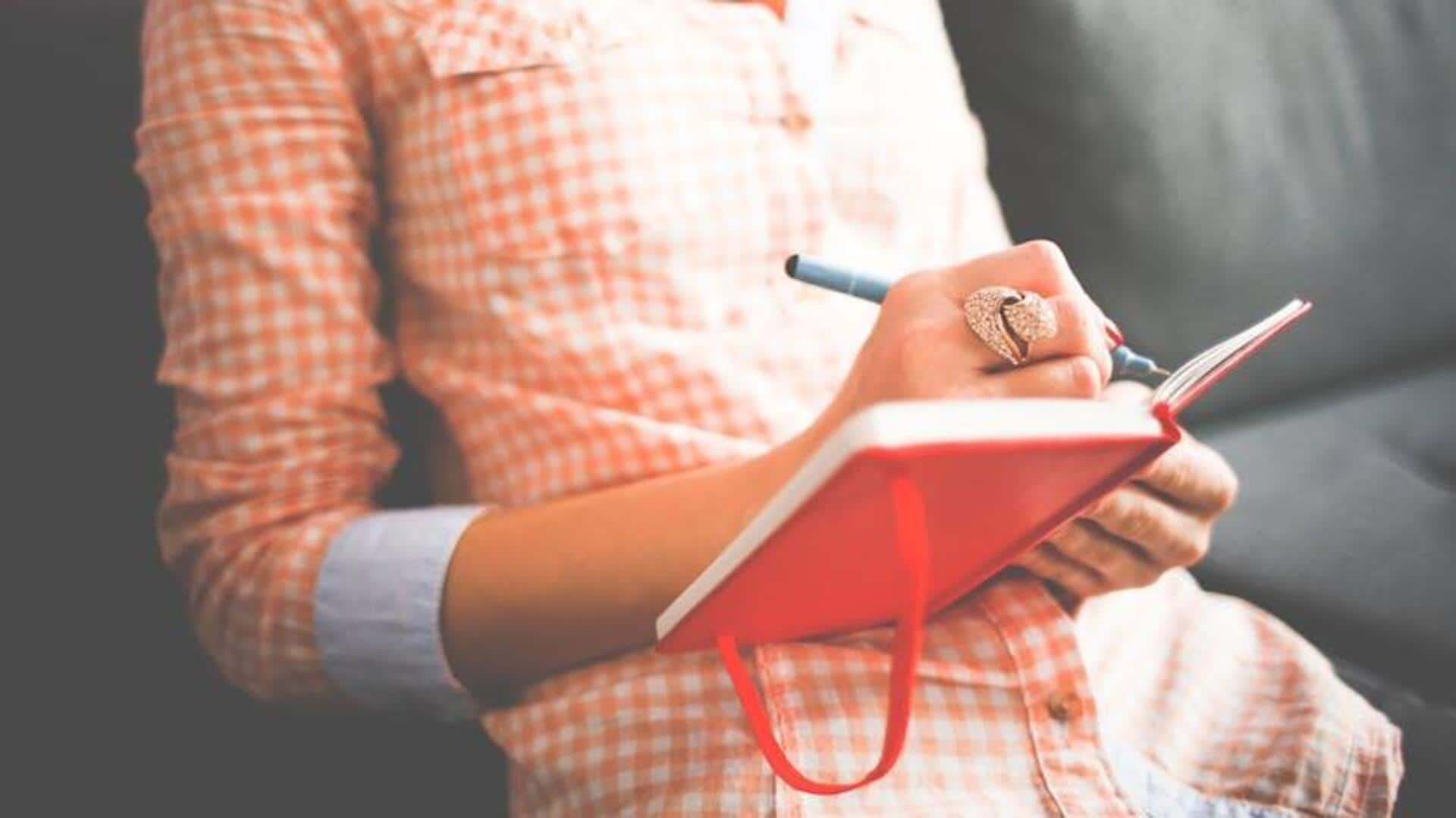
Stressed? Start journaling: Here's how it helps
What's the story
Evening journaling can be a potent stress-buster. By taking time each night to reflect and write, you can process your thoughts and emotions better. The practice not only organizes your mind but also encourages relaxation before sleep. Here are five ways evening journaling can help you de-stress and improve your well-being overall.
Tip 1
Set a consistent routine
Establishing a consistent journaling routine is key to reaping the benefits of this practice. Pick a particular time each evening to sit down with your journal and ensure it becomes a part of your daily routine. Consistency aids in creating a habit, making it easier to unwind and focus on writing without distractions.
Tip 2
Focus on gratitude
Writing about things you are grateful for can take your mind off stress and towards positivity. Every evening, jot down three things that went well during the day or things about life you are thankful for. This simple act can improve mood and reduce anxiety by cultivating an attitude of gratitude.
Tip 3
Reflect on daily experiences
Reflecting on daily experiences helps you process events and emotions in a constructive manner. Jot down significant moments from the day, how they made you feel, and what you learned from it. This reflection helps you understand your personal reactions and prepare yourself to cope with them in the future when the challenges arise.
Tip 4
Set goals for tomorrow
Setting goals for the next day gives you direction and eliminates uncertainty-related stress. In your journal, write down tasks or objectives you want to achieve tomorrow. Having clear goals helps you prioritize what you need to do, making you more productive and less anxious about what lies ahead.
Tip 5
Practice mindfulness writing
Essentially, mindfulness writing is all about being present in the moment while you write in your journal. Notice your thoughts as they pour onto the paper without any judgment or analysis. This practice promotes self-awareness and relaxation by letting your thoughts flow freely without any pressure or expectation.